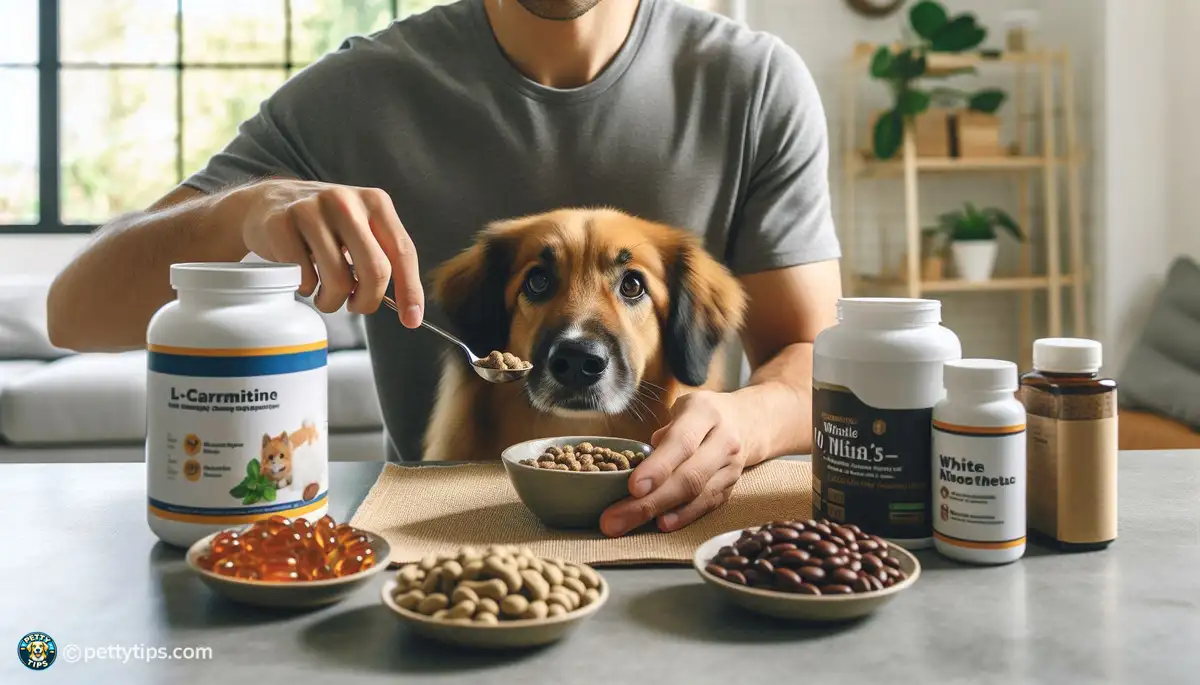
Addressing the Concerns of Raw Food in Homemade Pet Diets
Arianna Sperry - Sep 10, 2024 - 6 min read


Maintaining a healthy weight in our pets is just as crucial as it is for us humans. Obesity in pets can lead to a myriad of health issues, including diabetes, arthritis, heart disease, and a decreased lifespan. As responsible pet owners, it's our duty to ensure that our furry companions are at a healthy weight to live a happy and fulfilling life.
Identifying whether your pet is overweight can sometimes be tricky, especially if you see them every day. One useful tool is to regularly assess their body condition score (BCS), which evaluates their body fat percentage and muscle mass. You can consult your veterinarian to learn how to assess your pet's BCS accurately.
Diet and exercise play a significant role in managing your pet's weight. Just like with humans, a balanced diet and regular physical activity are essential for maintaining a healthy weight in pets. However, sometimes diet and exercise alone may not be enough, especially for pets with underlying health conditions or metabolism issues.
Incorporating weight loss supplements into your pet's diet can be an effective way to support their weight loss journey. These supplements are specially formulated with ingredients that promote weight loss, boost metabolism, and provide essential nutrients to support overall health. However, it's crucial to choose supplements that are safe and suitable for your pet's specific needs.
Before introducing any weight loss supplements to your pet's diet, it's essential to consult with your veterinarian. They can assess your pet's overall health and provide personalized recommendations based on their specific needs and medical history. Your veterinarian can also recommend reputable brands and guide you on proper dosage and administration.
When choosing weight loss supplements for your pet, it's essential to carefully read the ingredients list. Look for supplements that contain natural, high-quality ingredients that are scientifically proven to support weight loss and overall health in pets. Some common ingredients to look for include green tea extract, L-carnitine, and omega-3 fatty acids.
On the flip side, it's equally important to avoid supplements that contain harmful ingredients or additives that may have adverse effects on your pet's health. Be wary of supplements that contain artificial colors, flavors, or preservatives, as these additives can be harmful to your pet's digestive system and overall well-being.
When incorporating weight loss supplements into your pet's diet, consider their preferences and specific dietary needs. Some pets may prefer supplements in the form of tasty treats, while others may prefer capsules or powder that can be mixed into their food. Additionally, take into account any dietary restrictions or allergies your pet may have when selecting supplements.
When introducing weight loss supplements to your pet's diet, it's essential to start slowly and monitor their progress closely. Gradually introduce the supplements into their daily routine and keep track of any changes in their weight, appetite, and overall well-being. If you notice any adverse reactions or concerns, consult your veterinarian immediately.
To ensure the safety and effectiveness of weight loss supplements, always follow the recommended dosage guidelines provided by the manufacturer or your veterinarian. Avoid overfeeding or doubling up on doses, as this can lead to potential health risks or complications for your pet. If you're unsure about the appropriate dosage, consult your veterinarian for guidance.
Consistency is key when incorporating weight loss supplements into your pet's diet. Make sure to administer the supplements regularly and as directed to achieve the best results. However, it's essential to be patient and understand that weight loss takes time, so don't expect overnight results. With dedication and commitment, you can help your pet achieve their weight loss goals safely and effectively.
Lastly, don't forget to schedule regular check-ups with your veterinarian to monitor your pet's progress and adjust their weight loss plan as needed. Your veterinarian can provide ongoing support and guidance throughout your pet's weight loss journey, ensuring that they stay healthy and happy every step of the way.
Incorporating weight loss supplements into your pet's diet can be a valuable tool in managing their weight and promoting overall health and well-being. However, it's essential to approach this process with caution and prioritize your pet's safety and well-being above all else. By consulting with your veterinarian, choosing high-quality supplements, and implementing them safely and effectively, you can help your pet achieve their weight loss goals and live a happier, healthier life.